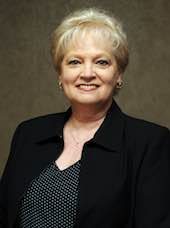10 minutes
A lack of time and balance are common complaints among working women, precipitating other negative side effects—feelings of guilt and inadequacy. But there are ways to be more fulfilled.
Checking email before daybreak, organizing the kids’ daily schedules, and then it’s off to the races at work. Next is managing meetings, fielding questions and making sure you’re bringing your A-game for maximum productivity. Then it’s back home for more of the same. Forget going for a run or playing Frisbee with your children after work. For many women, this time bind is just a fact of life.
It’s no wonder the most consistent characteristic predicting work-life imbalance is being a parent, reports The Journal of Family and Economic Issues. The article describes a “time bind” as a condition that occurs when work and family (or other personal obligations) are perceived to be out of balance due to a lack of time and the individual’s inability to control the balance between them.
However, there are steps women can take to curb the time bind. These include prioritizing, setting boundaries and aligning with mentors, as well as taking care of oneself.
Finding Time for It All
“This situation is common to women and requires organization,” notes Cheryl Middleton Jones, chief people officer for CUES Supplier member CO-OP Financial Services, Rancho Cucamonga, California, and a divorced mom of two children. “I prioritize as much as I can, assigning my most critical tasks, my ‘brain work,’ during a defined part of the day. I carve this out time and set boundaries where I do have control.
"As an example," she explains, "I schedule ‘productivity time’ in my day and use that time for impromptu meetings or to get deliverables completed. And I dedicate time early in the morning to my hardest tasks, so I get the most challenging work completed first. Later, I play catch-up or read emails—things requiring less mental energy.” To support this, Middleton Jones strives to schedule at least two 30-minute blocks on her calendar per day. "When I have something that is due ... , I stretch that time into one big block," sometimes two to three hours, depending on the time needed to meet the deadline.
Time is the new currency, adds Samantha Paxson, chief experience officer for CO-OP Financial Services. “My day starts at 5:30 a.m. And like most moms, I hit the day running. I make sure to take the first hour and a half of the day for myself, whether that is to read, exercise or to just gain focus. It can be really difficult to give thought and energy to any one thing. However, being intentional with your time boundaries ensures you’re the one in control of your day, not others. Creating space for yourself throughout the day and being able to compartmentalize all the priorities vying for your attention can be freeing and are hugely useful talents.”

A reliable support system is also central to a successful woman’s life. “Women can and do absolutely help each other out,” says Paxson. “Lending support is something we’re especially good at.”
Consider one of Paxson’s memorable work moments, which has less to do with work and more to do with relationships. On the morning of a big day (Paxson was scheduled to conduct a webinar for 1,000 credit union professionals), her young son woke with a full-blown bout of the flu. No one was available to help except a neighbor who volunteered to watch him while Paxson conducted the webinar in the next room.
“I couldn’t have made it through without my neighbor that day,” she says. “My goal is to return the favor, to reach out to our fellow women and encourage them to do the same.”
Finding balance and setting time boundaries also means negotiating with your family.
“There are complexities and lots to juggle, even with two fully participative parents. Sometimes, though, my kids want to talk to their mom even if dad is around,” says Middleton Jones. “And within the work environment, I find fathers who struggle, who also want to be present as much as moms are for their kids. I believe in my company, the balance between work and family can be discussed openly to ensure people feel supported. Employees know they are expected to work hard but are still able to balance that with lives outside of work.”
A solid benefits package can be a godsend, continues Middleton Jones. “At CO-OP, we support our employees so they can better help the people in their lives. And we continually review potential benefits that promote work-life balance. Dependency care, for example, is a service that helps employees care for sick kids or elderly parents and a benefit we’re considering.”
When an employer can be supportive and encourage staff in their careers, it’s invaluable. “Things like flexible schedules, telecommuting and other flex benefits have not only been good for the employees but business,” says Paxson. The ability to work remotely offers a competitive advantage: It allows CO-OP Financial Services to hire strong talent anywhere without the need to relocate. Twenty-one percent of the company’s employees telecommute today. All of these benefits can help relieve the time bind for both staff and leadership. So can things like hiring out the daily chores, if feasible.
Both women concede that the effort of finding work-life balance intensifies if a woman struggles with money as well as time.
“The road hasn’t always been easy, and most of us start in a similar place,” reflects Middleton Jones. “But work your way up through the struggles and take proactive steps, such as 1) create a roadmap; 2) find role models and mentors to help; 3) model women you admire, those who lead by example in the way of a family and professional life; and 4) talk with other women, so you know you’re not alone. Realize a person is never successful all on their own.”

As an up-and-coming leader, Paxson admits she felt driven to prove herself early in her career and had to find the courage to ask for help.
“I’ve realized in my career that it’s okay to say I’m human and will always have the opportunity to grow. As a high performer, I’d be an even higher performer with help. Advocating for oneself by acknowledging vulnerability is not evidence of weakness; it demonstrates self-awareness and confidence. It shows initiative, knowledge and assures others that you understand yourself enough to perform at your best.”
Middleton Jones, who is African American, says asking for the things she needs can feel even more complex.
“As a woman and woman of color, I was not socialized to ask and negotiate for what I wanted. I was encouraged to work hard and succeed academically, but the part about how work gets done—the influencing and self-advocacy part of work—was something I learned over time. I’ve learned to go for it and to ask for help when I need it. I’ve also learned the importance of listening to others and sharing experiences so we can all benefit.”
Overcoming Guilt
Guilt is an unfortunate byproduct of the time bind, and women seem to harbor it at soaring levels. Ashley Milne-Tyte, host of The Broad Experience podcast, and writer for the recruiting site The Hired Guns, believes women bear these feelings of guilt much more intensely than their male counterparts.
“Most men are not constantly obsessing over something they may have said to upset someone at work, or worrying about a favor they didn’t do, and they’re certainly not tying themselves in knots over being away from their children during the working day,” writes Milne-Tyte. “But because women are so geared towards relationships, we are excellent at feeling awful about anything that could harm those relationships. Professional women need time, energy and the ability to focus, and guilt eats into all three.”
CUES member Ruth Barnes, ABR, GRI, real estate broker-in-charge and current secretary of the board of directors at $2 billion Local Government Federal Credit Union, Raleigh, North Carolina, has experienced these feelings. But as an advocate for credit union women (and a member of Global Women’s Leadership Network), she encourages women to keep the “working mom guilt” at bay by achieving balance with confidence and self-awareness.
“The first thing women should do is change their thought process and the guilt associated with being a working mom,” Barnes explains. “Most men don’t have this guilt built into their DNA, but they are equally responsible for raising a child. As women, we need to start thinking of ourselves as equals and should expect to be treated as equals.
“Second, set aside some quality time to spend with your children every day,” she suggests. “Distraction-free parenting is the best gift you can give to your children. It helps them feel heard and validated. This will help build a better relationship and reduces the guilt of working moms.”

According to the Bureau of Labor Statistics, working moms in America assume around 1.5 hours more of household and childcare duties than working dads, while dads enjoy around one hour more of leisure activities daily.
“Men (and society) need to realize they’re just as responsible for the loving care of the family unit,” continues Barnes. “This means taking an equal part in raising their children and the chores that come with a family. Share equally the doctors’ appointments, sick days, cleaning, cooking, as well as quality time. Partners who work on this together can accomplish a strong and equal work-life balance.”
“At LGFCU, we have programs that encourage employees to be responsible parents and community helpers,” notes Barnes. “For example, employees are aware of the work-life harmony philosophy of LGFCU’s leadership, a philosophy that enables them to keep family and community a high priority. Also, LGFCU provides employees with volunteer hours as part of their benefits. This benefit offers opportunities to become involved in community initiatives. With the number of employees we have, this is significant.”
For time-bound employees, this means they have more opportunities to connect with the community without sacrificing precious personal or family time. “We strive to be diverse, inclusive and equal to our members, employees and communities,” Barnes concludes.
Shed Other Negative Reactions
Struggling with work-life balance can lead to feelings of inadequacy, which eat away at professional and personal growth—and a person’s peace of mind.
“Society sets expectations for both men and women,” notes CUES member Deonne Christensen, president/CEO at $687 million Mazuma Credit Union, Kansas City, Kansas. “Think of our work cultures and what’s rewarded: projects completed in truncated timelines, demands on employees who are required to produce more, faster, and never miss a day.
“If we could redefine success, it would go a long way in creating societal change,” she continues. “It would also create a better balance with business goals (productivity) and personal needs, a positive change that would benefit not only working parents but really anyone. To craft change in your organization, network with staff to see what’s important and possibly redefine who does what. If needed, reset project expectations; perhaps you recalibrate a project from a three- to a six-month timeline.”
Also, create opportunities for conversation around gender inclusivity and other work-life needs. “Think about work events, like chamber meetings. When do they happen? Early morning or after work, two of the worst times for working parents,” observes Christensen, a mother of four. “Work with community partners and let organizations know your credit union’s aspirations for balance.”
Internally, reorganize who attends what. “Suggest those without young children attend the before- or after-hours events. See what you can do internally to balance work and life, whether it’s your schedule, your team’s, or how you prioritize projects and production.”
Gender bias is also still a challenge in the workplace, submits Christensen. “But it’s less about men not wanting to support professional women. Rather, they simply don’t know how to do it. No matter how far women progress, it takes both genders to foster change.”
Christensen recently attended a gender summit. “While the men wanted to know what they could do to be part of the change, the women wanted to vent, to use the forum to express anger. And make no mistake, anger is justified—because there is a lot of emotion tied to the situation. But for real change, we need to move past that. To keep the anger simmering hinders our ability, and we fail to see that we’re at an amazing point in our history. As women, we need to advocate for ourselves and look at the situation from a macro level. This will provide both power and peace.
“Advocacy also requires staying true to yourself,” she stresses. “Don’t emulate male counterparts. … Do the opposite; be natural, embrace your differences and keep your levels of empathy sacred.” cues icon
Stephanie Schwenn Sebring established and managed the marketing departments for three CUs and served in mentorship roles before launching her business. As owner of Fab Prose & Professional Writing, she assists credit unions, industry suppliers and any company wanting great content and a clear brand voice. Follow her on Twitter @fabprose.






